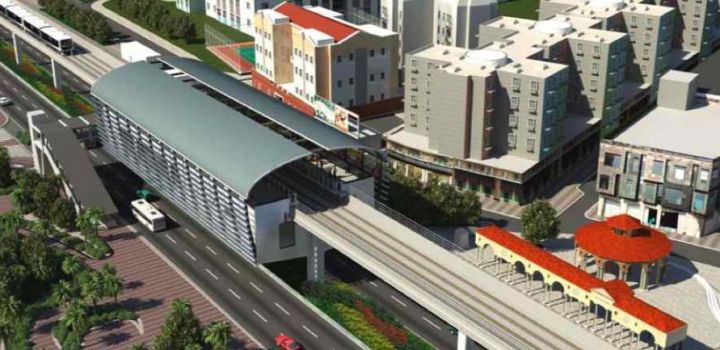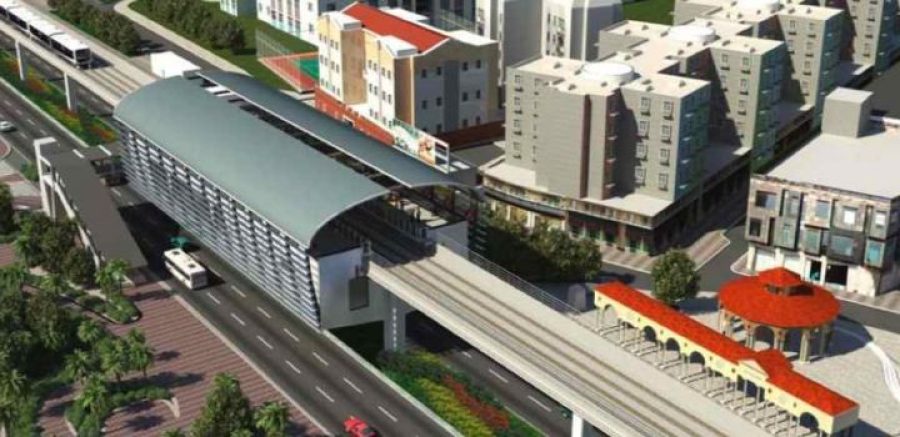The Executive Council has announced that the government has drafted a bill regulating the future operation of the Light Rail Transit (LRT) system, which proposes that anyone violating the rules listed in this future new LRT law will face a fine of up to 10,000 patacas.
Leong Heng Teng, spokesman for the government’s top advisory body, made the announcement during a press conference at Government Headquarters on Friday.
The government has repeatedly reaffirmed that the LRT Taipa section is scheduled to be operational next year. The Taipa section, which includes Cotai, is 9.3 kilometres long and will have 11 stations.
Leong noted that a research group consisting of experts, scholars and government officials had studied the legal systems of the operation of railway systems in a number of countries and regions for the drafting of the LRT bill, adding that the government also carried out a two-month public consultation on the matter early last year.
The government has drafted the LRT bill after studying opinions and suggestions collected during the public consultation period, Leong noted.
The bill lists a raft of obligations for the operator of the LRT system, LRT passengers and other members of the public, according to Leong.
Leong pointed out that the bill lists 14 “don’ts” for passengers and other members of the public using the facilities of the LRT system: 1) opening train doors or platform screen doors without permission; 2) damaging LRT stations or trains; 3) dirtying stations or trains; 4) disturbing other passengers, particularly by being noisy; 5) obstructing passengers going through ticket gates, using ticket machines or escalators; 6) advertising in the area of the LRT system or distributing pamphlets or other publications without permission by the LRT operator; 7) engaging in gainful activities without the LRT operator’s permission; 8) fundraising, collecting signatures or conducting surveys without the LRT operator’s permission; 9) lying down in LRT stations and trains (except for health reasons); 10) eating and drinking on the train; 11) travelling with animals except guide dogs; 12) travelling without a valid ticket; 13) obstructing passengers getting off the train when getting onto the train; 14) smoking in LRT stations or trains.
According to Leong, in addition to the 14 “don’ts”, the bill also proposes that passengers must not threaten the safety of the LRT operation, such as by carrying hazardous items (explosives, inflammables, toxics, radioactive materials or corrosives), throwing objects at trains or onto the tracks, or activating emergency or safety devices except for reasonable circumstances.
The bill proposes that passengers failing to comply with statutory obligations will face a fine, Leong said. Those who violate the rules in aggravating circumstances will face a fine of between 2,000 patacas and 10,000 patacas, while those breaching the rules in less serious circumstance will face a fine of between 500 patacas and 5,000 patacas, Leong said.
According to Leong, the bill also proposes that in the case of an accident the LRT operator must immediately report it to the Transport Bureau (DSAT). The LRT operator is required to submit a written report to the bureau within 72 hours of an accident detailing how it occurred, Leong said.
The bill also proposes that the Transport Bureau is required to publish an investigative report on an accident within one year of its occurrence detailing the causes and suggestions for the prevention of the same kind of accident, according to Leong.
According to Leong, the bill proposes a number of categories of criminal offences concerning the LRT operation, such as hijacking a train; controlling the driverless train (from the operations control centre) in a way endangering the passengers; endangering the safety of the LRT operation, and dereliction of duty by staff members. The offenders face a prison term of between five and 15 years, Leong said.
Leong noted that the existing criminal offences concerning the operation of the railway system listed in the Macau Penal Code are only applicable to “traditional” railway systems. That is the reason why the government is proposing the new categories of criminal offences for the LRT operation, according to Leong.






